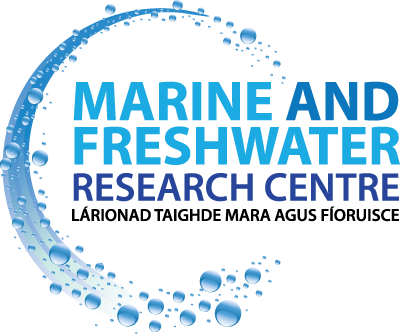Working together to enhance the management of marine and freshwater ecosystems.
Based at ATU’s Galway Campus on the west coast of Ireland, the Centre conducts applied research that is policy relevant. We develop innovative solutions to natural resource management challenges and support evidence based decision making. MFRC research is supported by industry and a diverse range of National and European funding programmes.
Enabling Sustainability
Our researchers help ensure the sustainable management of fisheries and their ecosystems by collecting, analysing and interpreting data.
Conserving Biodiversity
Our scientists help to conserve biodiversity by assessing the response of aquatic species to human impacts and environmental stresses.
Improving Productivity
Our team collaborates with industry, developing innovative technologies to improve productivity in the seafood sector.
The Hen Harrier Project aims to improve the sustainability of rural areas within areas designated as Special Protection Areas for Hen Harriers.
MicroplastiX (JPI-Oceans) aims to overcome knowledge gaps concerning microplastic weathering, degradation and fragmentation processes.
This research is funded by the Environmental Protection Agency and runs from 2020-2023. It is conducted in collaboration with Institute of Technology Tralee, The Environment Agency (UK), Environmental Research Associates (UK).
This collaboration with the Marine Institute is unlocking the value of fish scale and otolith collections to marine ecosystem and climate change research.
This NPWS-funded project assessed the conservation status of the White-clawed Crayfish, Austropotamobius pallipes, in fifteen Special Areas of Conservation (SACs) in Ireland.
The aim of this project is to investigate the influence of environmental and observational effects on Harbour Porpoise survey counts from the NPWS monitoring programme conducted across three spatial areas of conservation in 2007, 2008, 2013-2016 and 2018.
This collaborative project with the Marine Institute takes a whole life cycle approach to investigate how commercial fish stocks are responding to climate change.
This research aims to improve corncrake conservation status in Ireland by enhancing the SPA network and surrounding farmland.
MFRC PhD student Ms Kristina Steinmetz, is using non-invasive techniques to assess management units and conservation priorities for grey and harbour seals in Irish and north-western European waters
SeaMonitor is a novel and comprehensive project, the first of its kind in Europe, which will establish a number of large scale marine telemetry arrays to track mobile marine fauna in the seas around Northern Ireland, the Republic of Ireland and the west of Scotland.
MFRC researchers are collaborating with IT Sligo to investigate antimicrobial peptides in Atlantic Salmon.
FishKOSM aims to increase our operational understanding of sustainable yields in mixed and multi-species fisheries.
This EPA funded research project (2020-2023) is led by ATU Galway City and aims to gather and assess baseline data on oligotrophic lakes
This project aims at developing state-of-the-art molecular tools for the rapid and cost-effective screening of plankton samples for the presence of bivalve and crustacean species of commercial value. This project is in collaboration with BIM and is funded by the European Maritime Fisheries Fund.
This research explored the use of environmental DNA technologies for monitoring pollan (Coregonus autumnalis) in Irish waters
Oisre aims to chart the extent and biodiversity of remnant native oyster beds in Kilkieran and Bertraghboy Bay, in Connemara, Galway coupled with restoration and rejuvenation trials. These beds will be used as reference habitats for ecological restoration in Ireland and elsewhere and protected as sanctuary areas. In turn that would allow the sustainable management of these important biogenic habitats.
The goal of this project is set up a set of novel tools for the detection and monitoring of marine invasive species in Irish coastal waters. This project is funded by the European Maritime Fisheries Fund (EMFF).
The METRODIVER project, led by CNRS in France examines how marine protected area design influences trophic diversity and ecosystem health.
